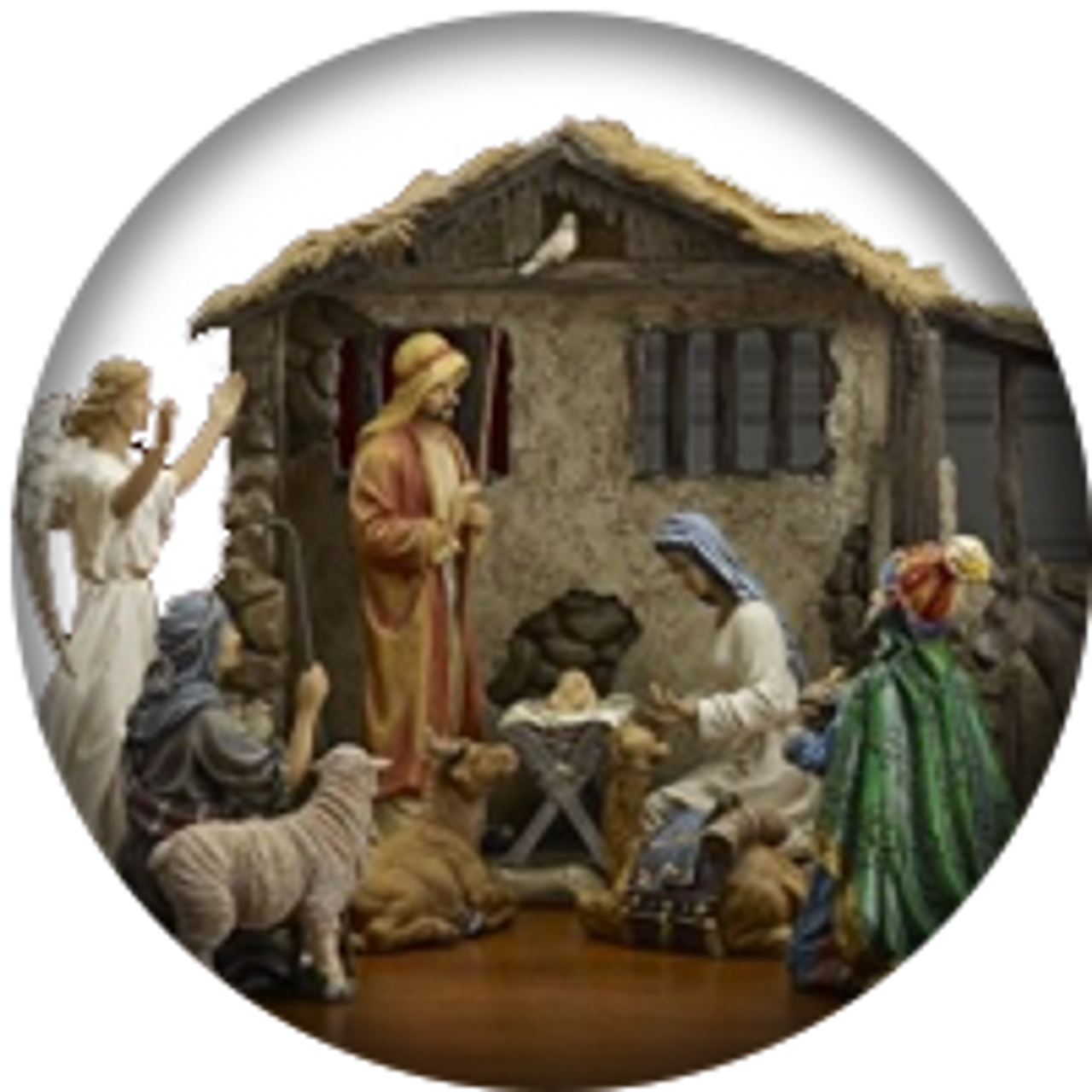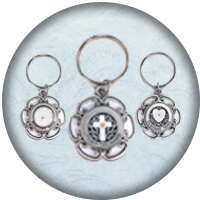EPIPHANY—FEAST OF THE THREE KINGS THE 12TH DAY OF CHRISTMAS
Kathy Boh on 4th Jan 2017
EPIPHANY—FEAST OF THE THREE KINGS
THE 12TH DAY OF CHRISTMAS
The final celebration in the set of three “gift-giving” feast days* marks the end of the Christmas holiday season—the 12th day of Christmas, or the Epiphany. The general date of this feast is January 6th, but it may be liturgically celebrated by some denominations on the nearest Sunday. (This year, it falls on Sunday, January 7th.) While American culture has not focused much on the feast of the Three Kings—the “Epiphany”— many European and Latino countries do celebrate this occasion.
WHAT IS THIS “TWELFTH DAY OF CHRISTMAS”?
Americans know it from the “Twelve Days…” song. ("On the first day of Christmas, my true love gave to me....") Europeans actually exchange gifts on this day—in countries around the Mediterranean Sea (especially Italy), and in Northern European countries, too. Presents are given on both Christmas and Three Kings Day… and sometimes on days in between.
The word “epiphany” means—according to the Miriam Webster dictionary—“a moment in which you suddenly see or understand something in a new or very clear way”.
The feast initially celebrated all the occasions when Jesus Christ was “revealed”—to the world; to the Gentiles; to God’s people on earth; and as God Himself. Just a Jesus grew from a newborn baby, he also “…advanced in wisdom and age and favor before God and man.” [Luke 2:52b]
While there were other events that occurred in His life that represented the gradually unfolding revelation of His true identity, this one happening near His birth is called “the Epiphany”: the celebration of the visit from the Wise Men to the baby Jesus.
We might just say it was the first major and marked “epiphany”… (or second, if we consider his birth as the first.) Other events that disclosed further insight into this God-become-flesh-Redeemer were His public “first miracle” at Cana; His act of coming to (His cousin) the prophet, John the Baptist to be baptized—with the descent of the dove and the Father’s voice from heaven saying, “This is my beloved Son, with whom I am well pleased” [Mt. 3:17].
SO—WHO WERE THE WISE MEN? HOW WAS CHRIST REVEALED TO THEM?
In eastern tradition, the term “theophany” is also used for this feast day. “Theophany” means “vision of God” or “seeing God”. “Magi” in ancient times were originally designated as a priestly caste. They also were “wise men”, and those who had knowledge beyond just natural, human understanding. Some studied the stars.
In ancient times, it was commonly believed that the appearance of a bright or new star announced or confirmed a ruler’s birth. In this case, more recent astronomers have said that the convergence of stars and planets—as seen from a distance— can appear to be a bright, new star. That occurs very rarely, and it is quite noteworthy and brilliant.
The magi followed the bright star across the desert, travelling from the east, as Matthew 2:1 tells us. Traditionally, it is believed that they originated from Arabia, Africa, and from Europe… and went by the names of Caspar, Balthazar, and Melchior. Their gifts were carefully chosen and symbolic.
Goldrepresents royalty, and suggests Jesus’ later title, “King of the Jews” and “King of kings”.
Incense has long been used in offering homage and prayer to God. This gift to Jesus pointed to the fact that he was no earthly king, but the Son of God. It also is a reminder that Jesus is our “High Priest”, ever-interceding in our behalf before the Father…. "Jesus... has a priesthood that does not pass away. Therefore, he is always able to save those who approach God through him, since he lives forever to make intercession for them." [Hebr 7:22-25]
Myrrhwas a spice used in preparing a body for burial, and, therefore, it foreshadowed the death of Christ—His life given “as a ransom for many” [Mt.20:28; I Ti. 2:6]. This was an insightful and exceedingly rare gift to give a newborn baby!
HOW CAN THE “EPIPHANY” IMPACT OUR LIVES?
As we listen to the epiphany readings this year we may realize that, in fact, each of us has a potential choice to make. We can choose how we are to respond upon hearing, again, about the birth of Jesus, the eternal King… how to respond in an authenticnewway to what is (for most of us) “old news”… the King of kings is born… three kings/ wise men visit and bring gifts to honor Him…
Will we react as Herod did—with his first response being a sense of personal “threat”? (We may think, “Whoa!! Never! … How could that be?...) We may think that we have little in common with Herod, who was himself a king, to begin with… Particularly as we remember that it was the “king” aspect that pushed his buttons of fear in regard to a new king on the horizon. (That resulted in the magi getting a warning from the angel to by-pass Herod on their return trip, but it did not stop Herod from the slaughter of the innocent babies in and around Bethlehem. [Matthew chapter 2]) This reaction was both extreme and horrific… so…
Whether we consider ourselves spiritual “seekers” or “true believers”, or religiously “baptized in the faith”, we don’t really care to admit any similarity to Herod’s response.
After all, we surely would never go as far as he did! (…killing the holy innocents…) But, our desire to “feel good” spiritually may prevent us from facing a substantial truth: that bowing to Jesus Christ as King (and Lord, and acknowledging the power and lordship that kings through the ages have possessed) may “cramp our style” a bit too much…
So how could our reaction be related to Herod’s? Consider this: we may find similar feelings in our response, when we come to realize just how much Jesus desires to be “king” over each ofourlives… and each aspect of our lives. We may find ourselves totally dedicated to ruling and reigning in and over our own “domain”—whatever that domain may be… and preferably, if you please, without interference or oversight, thank you…
We would never verbally say it, but inside we may feel:
“It’s fine if He stays in His neat little religious corner… We can ‘afford’ to ‘give Him His religious [practices] due’ for a brief time on Sunday, or even other times, too. (After all, aren't we used to compartmentalizing things?) But to ‘journey’ far off the path of our busy lives to ‘find’ Him… To give what we consider too precious to us as a gift to Him”… we hesitate.
To surrender much, not knowing what the future holds, or what this King may ask of us… just may be “too much”. To humbly acknowledge—by faith—that this King may be better equipped to manage and lead our lives…is another thing altogether. Frankly, that’s relatively easier to do in a distant-religious-sort-of-way…where God stays in His holy place and doesn’t mess too much with the “nitty gritty” of our every-hour, everyday lives.
The “rule” and management and “kingly” oversight in “my” life could feel seriously threatened by an increased and earnest measure of worship or surrender to this King of kings. This God-King just may infringe on some aspects of life that I may wish to control fully myself… by myself… although, some of us may be open to “temporary help” when/if/ and “as needed”… on our terms… at our bidding… But is this the way a “king” operates sovereignly over his kingdom?
We are (primarily) the modern, Western, "independent" thinking ones... who have a very hazy, remote concept of the power and authority of a sovereign king or kingdom. Kingdom dwellers were called "subjects"--subject and submissive to the king or queen. No area of life was off-limits for ruling kings in former times. His word was law. The character and motivation and integrity of the sovereign made all the difference.
WHAT CAN WE LEARN FROM THE THREE WISE MEN?
Back to the Epiphany… getting more specific…
More than two thousand years ago, three (and probably more) “Wise Men”—men of power, knowledge and influence (kings in their own realms)—travelled to follow a star, although they were neither Jewish nor (of course!) “Christian”. Yet, they had the humility and wisdom to seek out a better and wiser “king”—all the while not knowing when, how... nor how well this new king would rule over his “kingdom”!!
They risked and invested a great deal (travelling hundreds of miles over difficult landscape) to seek out this king who was attended by the light of a glorious star (and the earlier chorus of heavenly hosts singing nearby). They extended honor, and generous gifts, and valuable time, and the struggles of travel over rugged terrain… to worship this King—far outside their own realm—this King Whom many of us have long heard and known about...
WHAT THEN CAN WE DO AS WE CELEBRATE THE EPIPHANY?
Courageously and boldly, we can seek even beyond the spirit of the Three Wise Men… having eyes to recognize and hearts to honor a lowly and unpretentious baby King, whose kingdom was unlike the worlds’ kingdoms. We can ask the Holy Spirit for wisdom to look and recognize—daily—what is of His kingdom… in the midst of all the other pushes and pulls from all the other “kingdoms” in which we dwell—even in those kingdoms all around us, beyond even the ever-animated kingdom of “self”. (Some have suggested we ask ourselves the question, “To whom and to what are we bowing?”)
It may be time...for a new “epiphany” for each of us, and in each of us, personally… a new “realization/ revelation”.
May we seek that earnestly this new year. May it be accompanied by a grace that enables us to surpass the courage, humility and passion that a group of wise men long ago possessed.
May our gifts (to this King, of what we find most precious to us) come from deep inside our hearts and our lives, so that this “newborn king” has full permission to create His kingdom rule in us, through us, and around us… “His kingdom come, His will be done, on earth as it is in heaven”…as Jesus taught us to continually pray and seek.
*See the previous blog articles posted on November 30, 2016, "Gift-Giving at Christmastime, Featuring St. Nicholas", and December 7th, 2016, "The Greatest Gift Ever Given: Christ at Christmas".
(This blog article is based, in large part, on two blogs published on December 30, 2015 and January 5, 2016, by the same author.)










